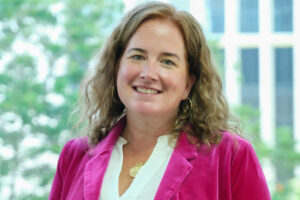Pru Life bullish on growth despite risks

PRU LIFE UK remains optimistic about its growth prospects this year despite high inflation and rising interest rates.
“We’re confident that in the medium to long term, because of people’s awareness of the need for health protection, the insurance industry is going to grow,” Prudential Corporation Asia Chief Health Officer Andrew Wong told reporters on the sidelines of a Pru Life UK briefing.
Prudential Corporation Asia is Pru Life UK’s regional head office.
Mr. Wong said inflation rates in the Southeast Asian markets they operate in, including the Philippines, are not as severe as those seen in Europe amid the Russia-Ukraine war and rising commodity prices.
“So certainly, we hope this is going to be like a temporary issue. Whatever goes up will come down again. And I think a lot of the central banks nowadays also tried to raise the interest rate in order to curb the level of inflation we have in the region… I’m confident that this issue will probably go away gradually… So, the impact of inflation on whoever should be a temporary phenomenon,” he said.
“We shall be in the position to develop more attractive products in terms of higher returns because of the increase in interest rates… We are in a better position to come up with some sort of higher guarantee return products as a result,” Mr. Wong added.
Philippine headline inflation eased to 6.3% in August from a near four-year high of 6.4% in July. This brought the eight-month average to 4.9%, higher than the central bank’s 2-4% target but still below its 5.4% forecast for the year.
The Bangko Sentral ng Pilipinas has raised benchmark rates by 175 bps so far since May as it seeks to rein in rising prices. Its next policy meeting is on Sept. 22.
CLIMATE RISKSPru Life at Wednesday’s briefing emphasized the need to increase awareness about the importance of protection against climate change risks.
“Our goal as the leading life insurance company is to raise awareness on the importance of insurance protection against climate health risks so more Filipinos are educated on the effects of climate change on their health and finances,” Pru Life President and Chief Executive Officer Eng Teng Wong said.
“We are also working together with different sectors to mitigate climate health risks by creating budget-friendly, climate-smart insurance products accessible to the unserved and underserved communities,” he added.
The life insurer noted that Filipinos are vulnerable to harsher weather conditions that can lead to the spread of climate-sensitive diseases such as heat-related illnesses, vector-borne diseases, and infectious diseases.
To encourage Filipinos to protect themselves against climate change, Pru Life offers products such as PRUMedCare Select Infectious Disease and two options of PRUDEngue MedCare, with the common goal of providing protection against dengue, typhoid, measles and malaria.
“Climate change is real and it will be one of the biggest challenges of our lives. Pru Life UK will continue to listen and lead the industry on climate health risks discussions to bring the issue of climate change to the forefront,” Pru Life’s Mr. Wong said. “Together, we will do a better job in putting Filipinos’ welfare as our top priority.”
The insurer is also working to make its products more accessible. Pru Life in July announced its partnership with e-commerce platform Shopee as it aims to offer affordable products to more Filipinos.
Prudential’s Mr. Wong added that Pru Life’s health app is helping the insurer reach underserved Filipinos in rural areas. The app has features such as symptom checker, health assessment, telemedicine consultations, digital nutrition, as well as mental wellness.
“As long as you have access to a smartphone, and also WiFi, you can download the app. You don’t need to be our customer and then you can have access to all these services and features 24/7,” he said.
“By doing that, we hope to serve the underserved people, or, in countries like the Philippines, where some of the people that live quite far away from the urban areas, they can have access to quality healthcare.” — K.B. Ta-asan




